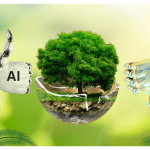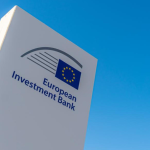Executive Summary
Kenya's growing carbon credit market has seen significant participation from both international corporations and innovative local startups.
As of 2025, new Kenyan businesses are capitalizing on carbon credit trading through various strategies, contributing to environmental sustainability and economic growth.
Introduction and Background
Kenyan startups are at the forefront of the carbon credit trading market, leveraging innovative approaches to address climate change while fostering economic development.
Their efforts not only contribute to global sustainability goals but also create tangible benefits for local communities through job creation and improved livelihoods.
As the demand for carbon credits continues to grow, these businesses are well-positioned to lead the way in Kenya's green economy.
Data and Analysis
In 2025, Kenyan businesses are actively engaging in carbon credit trading as a means to generate revenue while combating climate change. Key activities include:
- Revenue Generation: Startups focused on renewable energy and reforestation are earning substantial income by selling carbon credits to global buyers. For instance, M-KOPA Solar generates credits by replacing kerosene lamps with solar systems in rural areas.
- Carbon Offset Projects: Initiatives like the Kakamega Forest Carbon Project focus on preventing deforestation and promoting sustainable land use, significantly contributing to carbon credit generation. Sustainable agriculture projects, such as those led by SACDEP, also enhance soil health and sequester carbon.
- International Partnerships: Kenyan businesses collaborate with organizations like the African Guarantee Fund and Proparco, which provide funding and technical support, facilitating access to global carbon markets.
- Economic Impact: Carbon credit trading fosters job creation in local communities through activities like tree planting and renewable energy installations. Additionally, these projects empower farmers and small enterprises by offering financial incentives for adopting sustainable practices.
Key Findings
Kenyan Startups Leading in Carbon Offset Projects:
- Octavia Carbon:
- Overview: Octavia Carbon is pioneering Direct Air Capture (DAC) technology in Kenya, aiming to remove carbon dioxide directly from the atmosphere.
- Achievements: In 2024, the company secured $5 million in seed funding to advance its DAC initiatives, utilizing geothermal resources for efficient CO₂ removal.
- Business Model: By capturing atmospheric CO₂ and permanently storing it in geological formations, Octavia Carbon generates carbon credits. These credits are sold to organizations seeking to offset their emissions, providing a revenue stream for the startup.
- EcoSafi:
- Overview: EcoSafi focuses on clean cooking solutions by distributing biomass-fueled cookstoves in Kenya.
- Achievements: The company has successfully sold carbon credits at $35 per tonne of CO₂, a premium price compared to similar projects in Africa.
- Business Model: By replacing traditional charcoal-based cooking methods with cleaner biomass stoves, EcoSafi reduces greenhouse gas emissions. The resulting carbon credits are sold to international buyers, generating income and promoting sustainable cooking practices.
- YNA Kenya:
- Overview: YNA Kenya aims to increase the adoption of electric motorcycles, reducing reliance on fossil fuels.
- Achievements: The startup employs a carbon credit system based on blockchain technology to finance the transition to electric mobility.
- Business Model: By promoting electric motorcycles, YNA Kenya lowers carbon emissions in the transportation sector. The emission reductions are quantified into carbon credits, which are traded to support and expand their operations.
- M-KOPA Solar
- Focus: Renewable energy solutions.
- Initiative: M-KOPA provides solar energy solutions to off-grid households in Kenya. Their projects reduce reliance on fossil fuels and contribute to carbon offsetting by displacing traditional energy sources.
- Impact: Over 1 million homes have benefited from solar installations, significantly reducing carbon emissions.
Recommendations
- Expand Partnerships: Forge strategic alliances with NGOs, government bodies, and international organizations focused on sustainability and climate change. Collaborating with entities like the African Guarantee Fund can provide essential technical support and funding for carbon offset projects, enhancing credibility and facilitating access to global carbon markets.
- Implement advanced monitoring technologies such as satellite imagery, blockchain, or IoT devices to effectively track and verify carbon offset projects. This will improve transparency and accuracy in reporting carbon credits, attracting more buyers and investors.
- Create educational programs for local communities on sustainable practices, carbon credit trading, and environmental conservation. Empowering communities will increase participation in carbon offset projects, leading to better outcomes and improved livelihoods.
- Explore a range of carbon offset initiatives beyond reforestation, including sustainable agriculture, waste management, and renewable energy projects. Diversification will mitigate risks associated with reliance on a single project type and attract a broader range of investors.
- Develop targeted marketing strategies to promote the benefits of purchasing carbon credits. Highlighting success stories and the positive impact on local communities will raise awareness about the importance of carbon credits and attract more businesses looking to offset their emissions.
- Provide a marketplace for carbon credits, enabling businesses to invest in sustainability.
References








